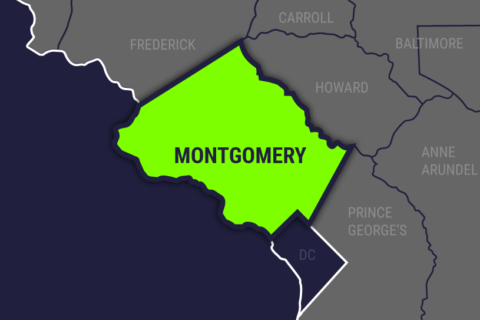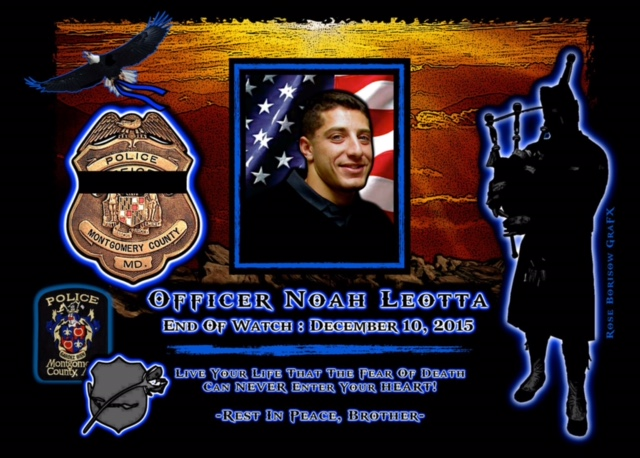GAITHERSBURG, Md. — The Red Cross blood drive at the Montgomery County Police Headquarters in Gaithersburg had been scheduled for months. Then an email blast went out to the department saying that the drive had been renamed to honor Officer Noah Leotta, and suddenly, all the available slots to donate were filled.
Wednesday morning, among the first to donate blood was Police Chief Tom Manger. He joked as he was prepped to donate that he might cry when the needle went in, or that he might faint.
But turning serious as he spoke to reporters, Manger said it was no surprise to him that more than 100 people — members of the public as well as police — were quick to sign up to donate blood.
“Noah saved lives while he was working, and he’s saving lives here today,” Manger said.
The 24-year-old officer was hit and killed by a car driven by a man police say had been drinking. The crash remains under investigation, but has galvanized efforts to toughen drunken driving laws in Maryland.
Leotta was hit while he was working as a member of a drunken driving enforcement task force. The young officer had volunteered to work that detail. He died a week later.
Fellow Officer Jeremy Wojdan said he signed up immediately when he got the department’s email blast that a blood drive would be named in honor of Leotta.
“It’s such an easy way to give back, and a way to honor our fallen officer, Officer Leotta,” Wojdan said.
Jim Toye, district manager for the Potomac District of the American Red Cross, said when the blood drive was first announced months ago, they had 38 appointments. But when Officer Leotta’s name appeared in connection with the drive, all appointment slots were filled in a matter of hours.
Toye said the holidays are a time when blood is critically needed.
“This is the gift that truly does keep giving.”
Toye says one donation can save as many as three lives. While the Wednesday drive was fully booked, Toye says donations are always welcome.
Interested donors can visit www.RedCrossBlood.org to find a convenient donation location or call 1-800-RED-CROSS.







